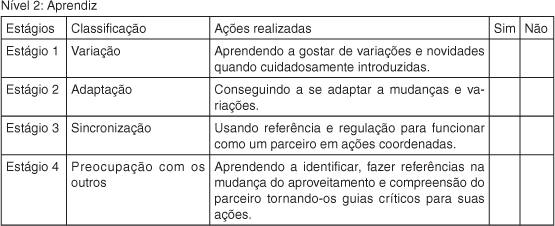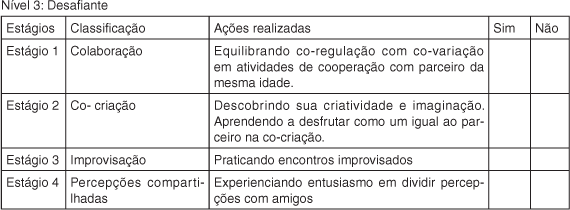PURPOSE: To verify if the application of the social-communicative adaptation protocol with different information sources, in this case, parents and therapists, is effective to identify individual differences in children of the autistic spectrum. METHODS: Subjects were 48 children, with ages ranging from three to 11 years and ten months, with psychiatric diagnosis included in the autistic spectrum. The parents of those children (46 mothers and two fathers) and 15 speech therapists, who were, respectively, legal caregivers and responsible for their speech-language therapy for at least 12 months, were also subjects of the study. They answered a questionnaire regarding each child's social relation performance. RESULTS: Generically, it is possible to say that the answers obtained from different sources (parents and therapists) were similar. However, the analysis of raw data showed that parents consistently presented higher number of positive answers when compared to therapists, in questions regarding social performance. CONCLUSION: The determination of data about social-communicative adaptation could characterize these subjects, demonstrating that this protocol can be used with different information sources; the answers provided by parents and therapists were homogeneous, confirming data reliability despite of significant differences in the comparison among social-communicative stages and levels. The application of the questionnaire and the social communicative protocol to different information sources can provided homogeneous results, allowing a reliable characterization of these children's social abilities.
Autistic disorder; Socialization; Communication; Language therapy; Parents









